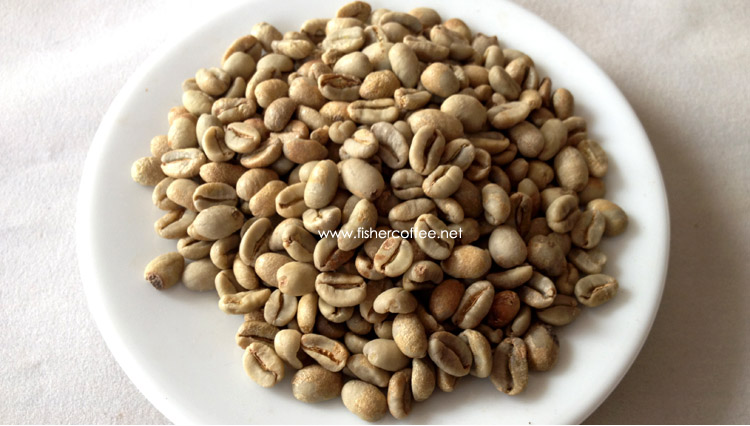The characteristics of Cubita Cuban Crystal Mountain Coffee the unique addition of special coffee beans in island coffee beans
In 1748, coffee was introduced into Cuba from Domiga, and Cuba began to grow coffee ever since. With fertile land, humid climate and abundant Rain Water, Cuba can be called a natural treasure land for coffee cultivation. The suitable natural conditions provide a favorable natural environment for the growth of coffee trees, and coffee is well planted and developed here. In Cuba, the cultivation of coffee is regulated by the state. The best coffee growing area in Cuba is located in the Central Mountains. Because this area not only grows coffee, but also produces quartz, crystal and other precious minerals, it is also known as Crystal Mountain. At present, Crystal Mountain Coffee is synonymous with top Cuban coffee.
Cubita is Cuban coffee, which is mainly exported to Japan, France, Germany, Ireland, Canada and other countries. The cubita coffee entering the Chinese market is all selected from the pollution-free Crystal Mountain coffee beans in the high altitude areas of Cuba, which is a typical Caribbean coffee bean. All the particles of coffee beans are strictly selected according to the standard of sieve 17-19, and the selected coffee beans have large particles and high maturity. Cubita is all picked by hand, using water washing refining method to remove defective beans and other impurities to a large extent.
Cigars, coffee and sugar cane, as the three major industries of the Republic of Cuba, enjoy a high reputation in the world. Cuban cigar has a very high reputation in the world and is known as the first cigar in the world. Cuban coffee also has a high reputation in the coffee industry. Cuban Crystal Mountain Coffee ranks among the top several in the world. Crystal Mountain is adjacent to the Blue Mountain Mountains of Jamaica, with similar climatic conditions, which is comparable to Jamaican Blue Mountain Coffee. Similarly, the annual output of Cuban Crystal Mountain coffee is not high, so most of the time there is a price but no market. Cubita is an important economy and trade in which Cuba and China have established diplomatic relations to show friendship.
Cubita, the designated coffee of the Cuban Embassy, attended the celebration of the 50th anniversary of Sino-Cuban friendship.

The uniqueness
Unique characteristics of Cubita Coffee: nobility, tenderness and elegance
Cubita is produced in coffee from the pollution-free Crystal Mountain in the high altitude of Cuba, which is adjacent to the Blue Mountain Mountains of Jamaica and has similar climatic conditions, comparable to Jamaican Blue Mountain Coffee. Crystal Mountain is also known as the Blue Mountain of Cuba. As a result, there are many coffees under the banner of the Cuban Blue Mountains, but the purest Crystal Mountain Coffee Cubita is the top coffee allowed to use the Cuban "Crystal Mountain Coffee" and has become a coffee designated by the Cuban Embassy to drink it. At present, Crystal Mountain Coffee is synonymous with top Cuban coffee.
Cubita adheres to the principle of perfect coffee, only makes individual coffee, the picking of coffee beans is done by hand, and all the particles of coffee beans are strictly selected according to the standard of sieve 17-19, plus washing coffee beans, to a large extent, remove defective beans and other impurities to ensure the quality of coffee. It has a high reputation in the coffee industry. Careful people will find that Cubita is indescribably unique with other coffee. Cubita is not like Italian coffee, which tastes bitter and knight-like; unlike the arrogance of Blue Mountain Coffee, it feels like an emperor. But Cubita is like an elegant princess, with a sense of natural tenderness, nobility, tenderness and elegance. The balance is excellent, bitterness and acidity are well matched, and there will be a meticulous, smooth, refreshing and elegant feeling when tasting, which is the best enjoyment of coffee.
"she" is known as "unique Caribbean flavor coffee" and "special coffee bean among island coffee beans".
Important Notice :
前街咖啡 FrontStreet Coffee has moved to new addredd:
FrontStreet Coffee Address: 315,Donghua East Road,GuangZhou
Tel:020 38364473
- Prev

Production area and treatment method of Maggie Coffee Bean in Summer Banji, Ethiopia
English name: Ethiopia Banji Maggie Rose Summer Coffee beans English name: Ethiopia Bench Maji Gesha Estate Commodity Specification: 227g Coffee country: Ethiopian Coffee producing area: Bench Maji Coffee Farm: Gesha Estate growth altitude: 1450-1600 m Coffee beans: Gesha,Typica treatment: exquisite Solar (on the scaffolding)
- Next

History of Taiwan Coffee from Crystal Mineral Coffee beans the unique flavor of Taiwanese coffee and coffee shops
In the 18th century, after the film boom, the British businessman "Deyang Foreign Company" came to Taiwan to do business and found that the environment of Taiwan was similar to that of South Asia and Central and South America. In 1884 (10 years of light), Nila introduced more than 100 coffee seedlings "Arabica" and planted him in the mountains of modern Taipei, but he was tired of kicking and packing.
Related
- Detailed explanation of Jadeite planting Land in Panamanian Jadeite Manor introduction to the grading system of Jadeite competitive bidding, Red bid, Green bid and Rose Summer
- Story of Coffee planting in Brenka region of Costa Rica Stonehenge Manor anaerobic heavy honey treatment of flavor mouth
- What's on the barrel of Blue Mountain Coffee beans?
- Can American coffee also pull flowers? How to use hot American style to pull out a good-looking pattern?
- Can you make a cold extract with coffee beans? What is the right proportion for cold-extracted coffee formula?
- Indonesian PWN Gold Mandrine Coffee Origin Features Flavor How to Chong? Mandolin coffee is American.
- A brief introduction to the flavor characteristics of Brazilian yellow bourbon coffee beans
- What is the effect of different water quality on the flavor of cold-extracted coffee? What kind of water is best for brewing coffee?
- Why do you think of Rose Summer whenever you mention Panamanian coffee?
- Introduction to the characteristics of authentic blue mountain coffee bean producing areas? What is the CIB Coffee Authority in Jamaica?

